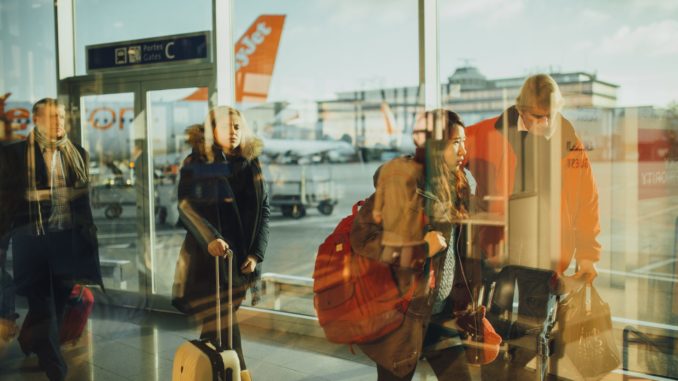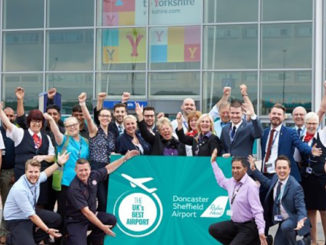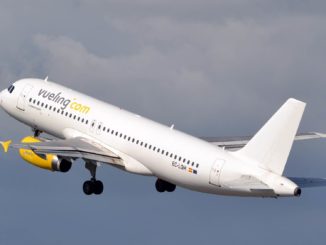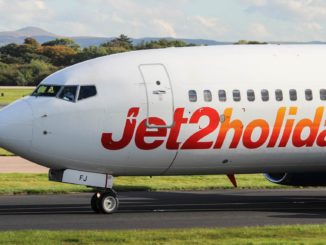
Research carried out by AeroCloud has found that 82% of passengers would spend more in airports if their journey through the airport was smoother and more streamlined.
The intelligent airport management platform provider surveyed 2,000 people and over two thirds said that if they could move through check-in and security in a more streamlined way they would be likely to spend more in airport outlets such as bars and restaurants.
This is particularly relevant for the 66% of passengers surveyed that intentionally arrive early at airports to utilise those facilities.
Becoming a “Destination Airport” is goal for many airports as they want to be the airport of choice for passengers and one of the common fears of airport operators is passengers choosing to fly from an alternative to theirs.
With that in mind AeroCloud says the blueprint to becoming a destination airport includes:
- Cutting queue times: Over half of passengers (56%) feel they spend all their time in airports waiting in queues and as a result, they have no time to visit stores or restaurants. It’s no surprise then that over half of passengers (51%) say they would pay more to speed up this process so they can get through to departures faster.
- Offering tech-enabled self-service: For 32% of passengers, the availability of self-service options, such as check-in kiosks, is a deciding factor in choosing one airport over another. 48% also want to see updated security scanners introduced to save removing liquids and electrical items from their bags at security.
- Dispel the markup myth: 82% of passengers believe prices in airport retail and dining establishments are too high. And 42% spend as little time in departures as possible to avoid what they deem to be unnecessary expenditures. By offering attractive incentives, such as discount codes, airports can entice the 75% of passengers who are tempted with value propositions.
- Investing in the business travel experience: Business travellers in the UK spend nearly double the amount spent by leisure travellers, including on fast-track services, electronics, and fashion retail. Duty free accounts for their highest spending category (£62).
- Creating an inclusive environment: Over a quarter of airports recognise the importance of catering to all passengers. This includes improving accessibility for passengers with disabilities, creating designated areas for neurodiverse passengers, such as those with autism, and zoning the airport for different experiences.
- Having something for the whole family: Providing play areas and entertainment options makes the journey more enjoyable for kids, so it’s unsurprising that 22% of passengers travelling as a family would choose an airport based on family-friendliness. 68% would also be more likely to spend money at the airport if entertainment facilities were available.
- Increasing capacity to introduce new airlines/routes: Three of the top four factors influencing passengers’ decisions relate to flight destinations and the airlines serving them. To increase their capacity for new airlines, airport operations leaders can embrace a more agile and flexible approach to infrastructure management.
George Richardson, CEO and co-founder, of AeroCloud, said: “The future is looking bright for global air travel as it experiences a huge surge in passenger volumes. This is encouraging for global airport leaders, particularly given as recently as October 2023, 52% of leaders were worried about the financial stability of their airport, with 37% still in debt.
“It presents a massive opportunity for the airport sector to soar to new heights. However, our research shows that passengers won’t settle for mediocre experiences and if airport leaders get it wrong, they will lose out on attracting these new passengers to neighbouring travel hubs.
“Consumers want seamless, self-service experience powered by tech. Discerning passengers are looking for comfortable and inclusive environments, with more choices in concession areas. We’re confident that airport sector leaders are committed to meeting passenger demands for improved experiences. With today’s innovative technology, talent and partners, airports have access to all the necessary tools needed to attract and retain passengers, boost passenger spending, and capitalise on the boom in air travel.”
The good news for the industry is that the survey also found that 70% of respondents intended to sustain or even increase their level of travel for business and or leisure in the next 12 months but will prioritise airports that offer a better experience.




